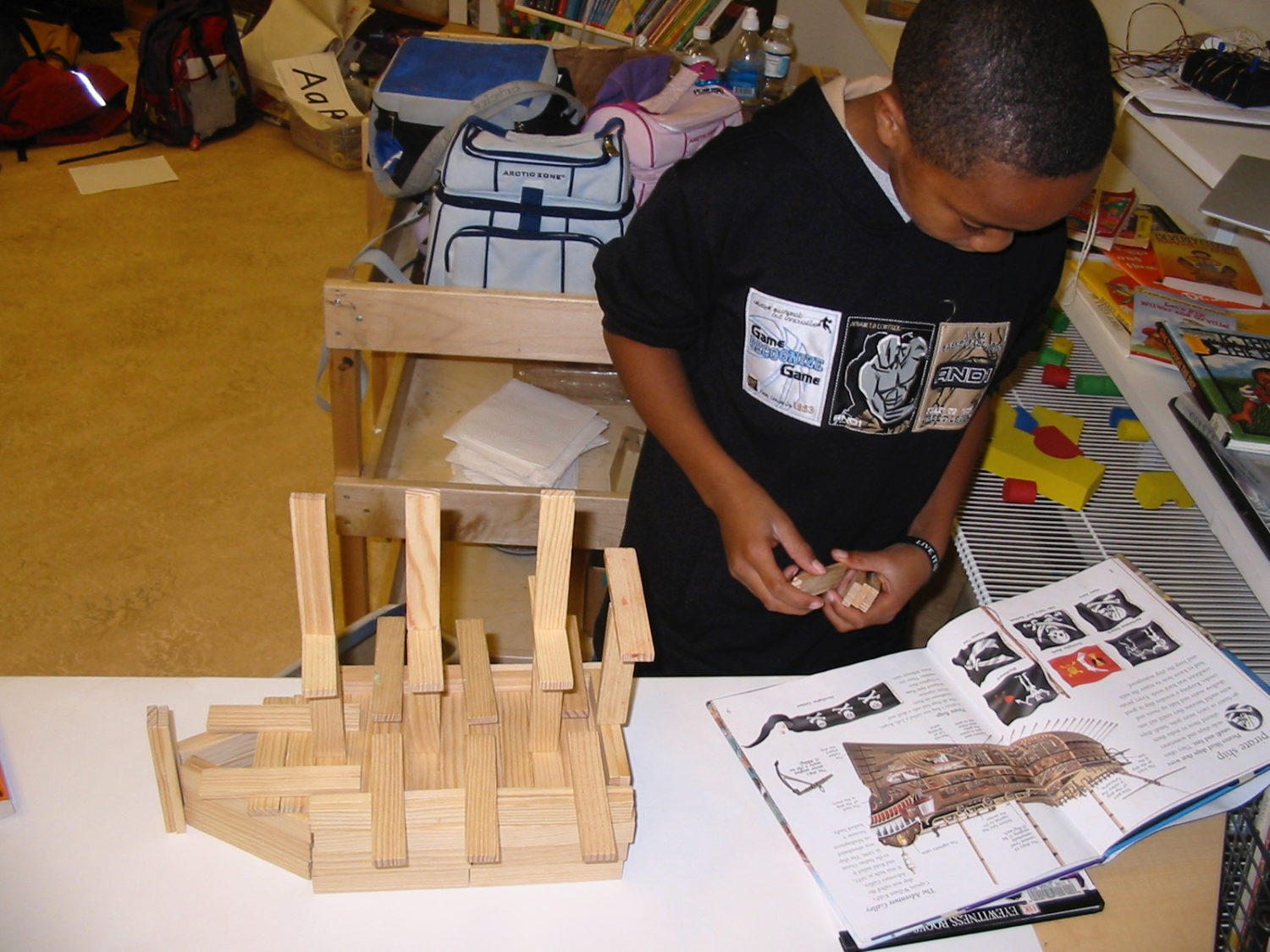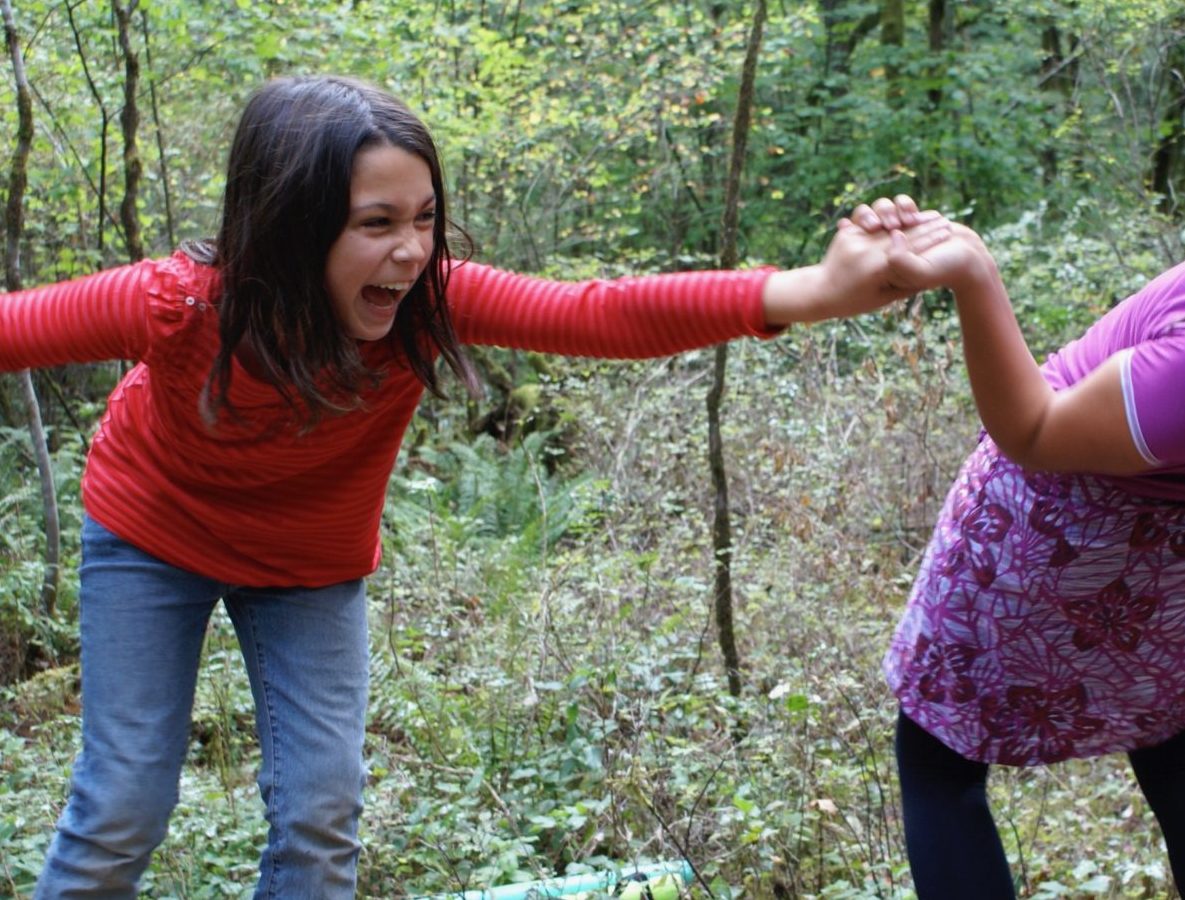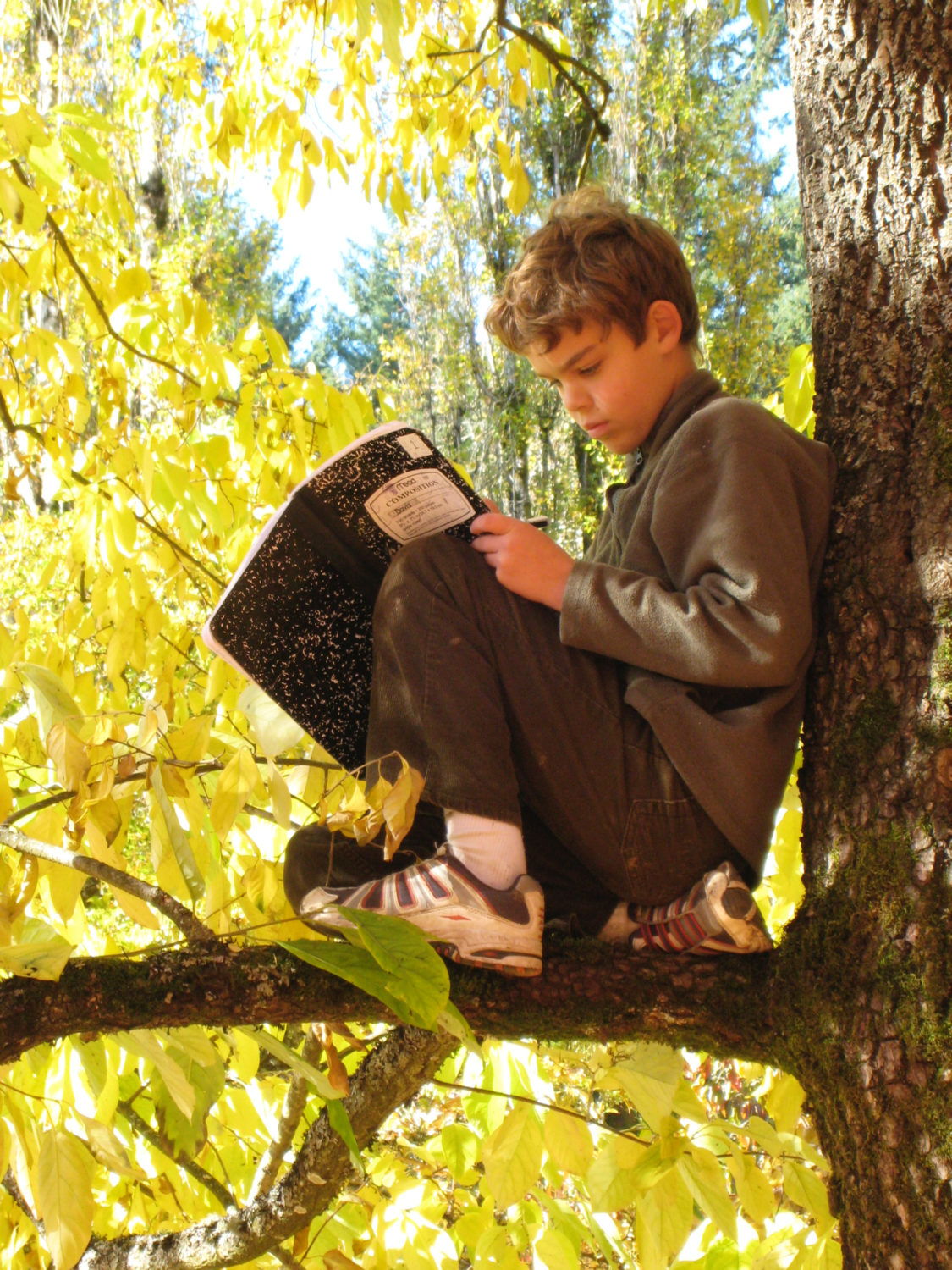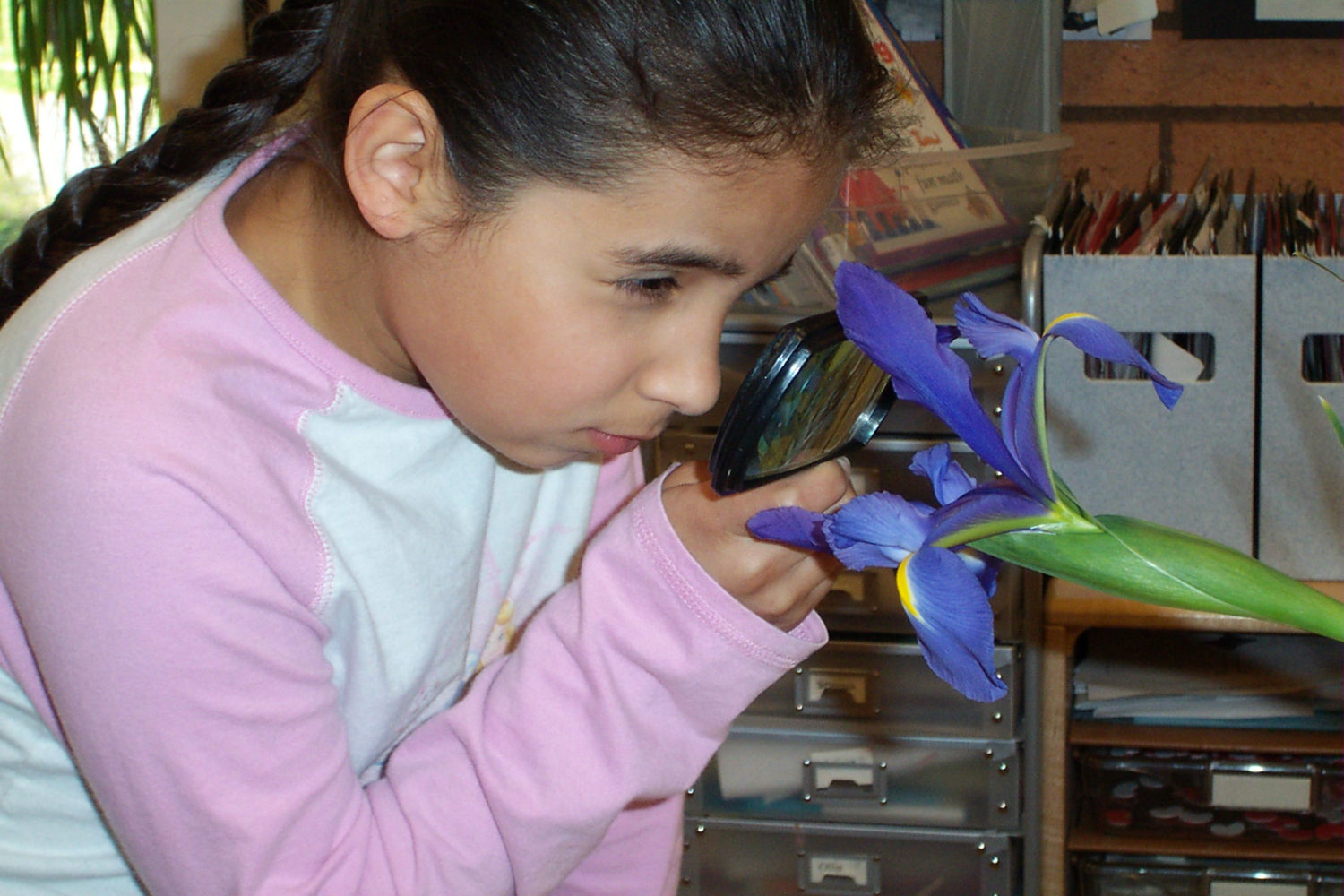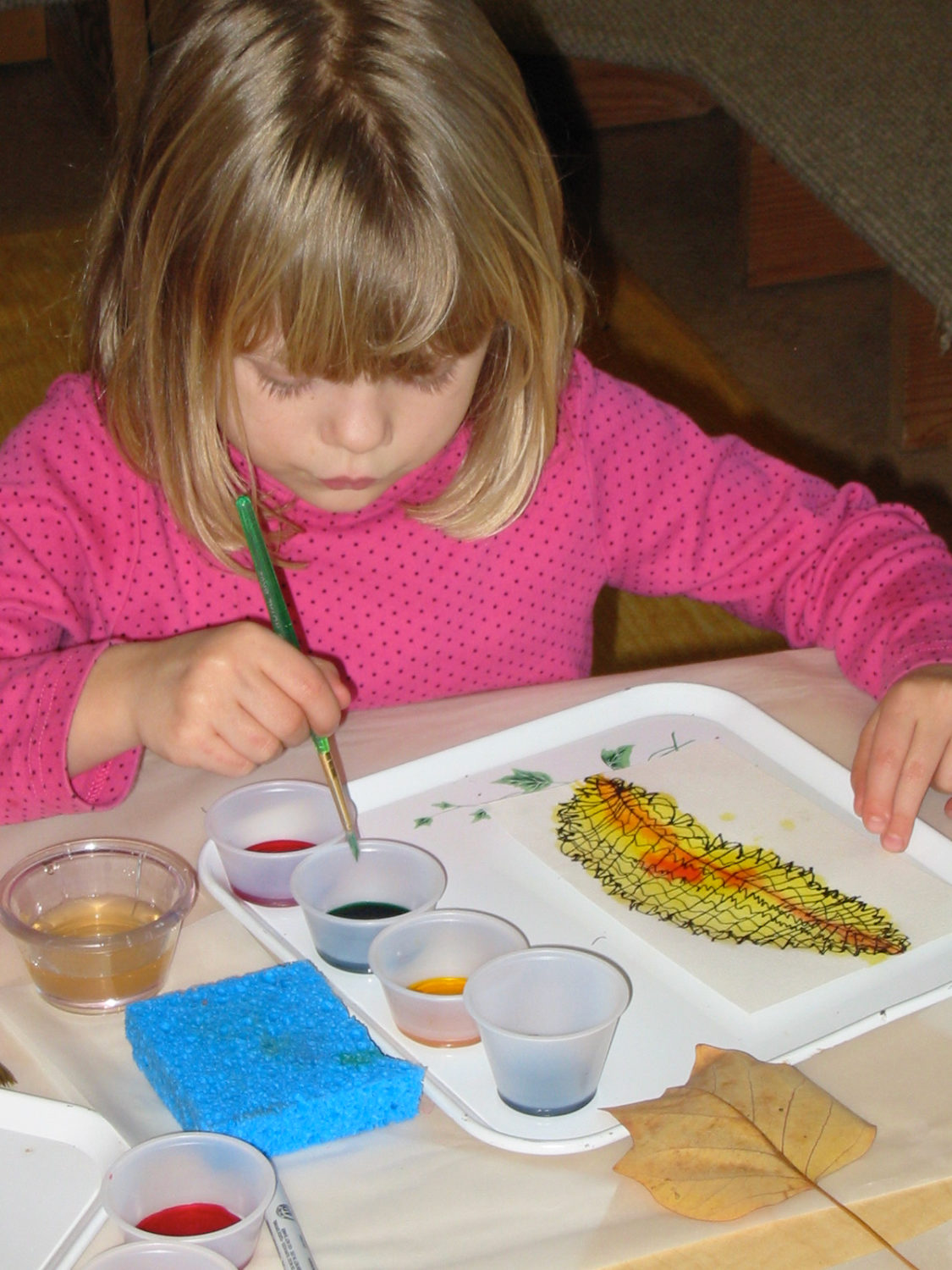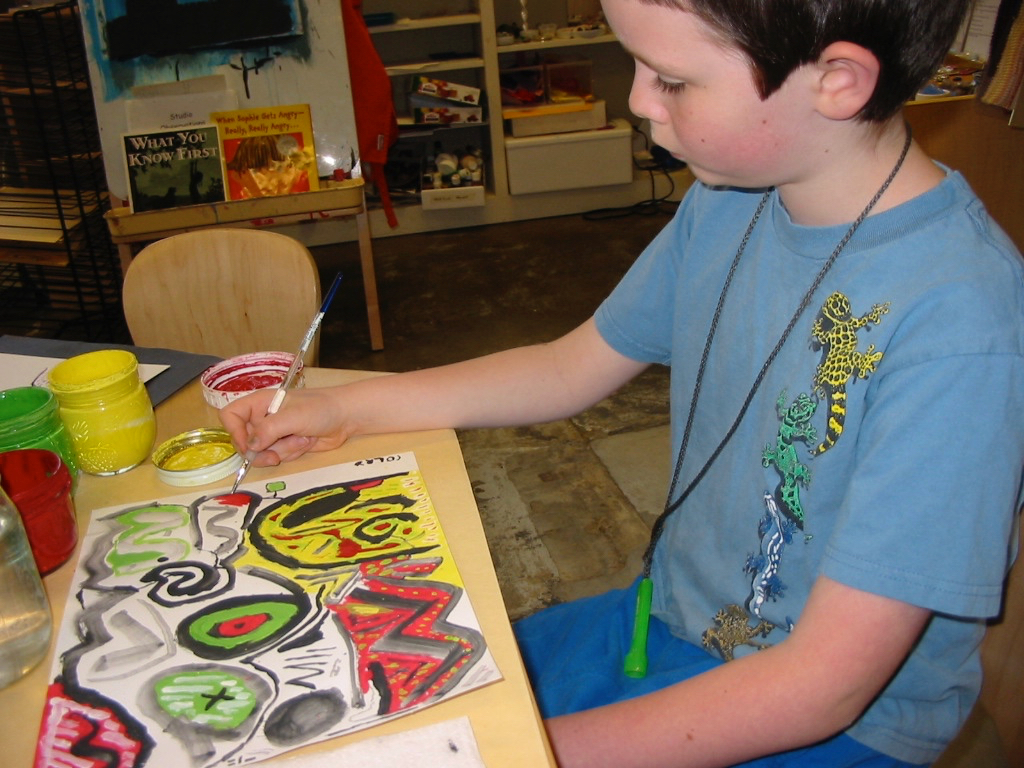A BRIEF HISTORY OF OPAL SCHOOL
Opal School began as a seed of an idea inspired by a 1996 study tour of the municipal preprimary schools of Reggio Emilia, Italy attended by a group of 10 educators from Portland, OR. The astonishing expression of ideas through the languages of the arts and wise and poetic words from these young Italian children provoked this group of educators, lead by Judy Graves and Caroline Wolfe, to wonder why we rarely see such sophisticated expression of ideas from children in our own schools. They wondered, “What could be the implications for American public education?” At the same time they were asking that question, the Oregon legislature passed SB 100, Oregon’s Charter School Act – and, at the same time, Portland Children’s Museum was expanding and moving to a new home. A kind of wondrous happenstance involving months of negotiations between Judy Graves (Opal’s Founding Director), Portland Public School administrators and the Museum’s Board of Directors, eventually brought it all together and Opal School was born as a prek-grade 5 public school charted by Portland Public School District and a program of Portland Children’s Museum. (See Opal School’s Guiding Principles)
In September of 2001, Opal School began with preschool through first grade (about 40 students) and added one grade level each year thereafter until reaching grade 5. Although there was no state funding for the preschool program, the state’s charter school start-up funding allowed the preschoolers to enter through the lottery system and attend Opal school without tuition fees. Five days later it was 9.11.01 – and the whole world changed.
Before Opal launched our first group of 5th grade graduates in 2006, charter school start-up funds coming from State and Federal programs ended and the school was left without public funding for our preschool students. For several years, we worked with parents on various funding models that allowed at least some of our preschool slots to remain tuition-free, even if only for the younger siblings of the children who were already with us. Ultimately, we had to make the difficult decision to charge full tuition to all except staff of the museum for whom partial tuition reimbursement is a benefit. We made a commitment to keep tuition in the median range for independent preschool programs across the city.
With this change, Opal School also lost the ability to retain students from the age of 3 years through fifth grade because to enter Opal Charter at kindergarten, all applicants had to enter through a lottery. In spite of this, Opal School transitioned to a strong relationship between what we considered to be the three communities: beginning, primary, and intermediate. We played together, and thought together, and supported one another throughout the school.
In 2007, Judy Graves, Opal’s founding director, initiated a new program for the Museum that was funded primarily by the Paul G. Allen Family Foundation. This funding allowed the Museum to create an infrastructure for professional development that became known as the Museum’s Center for Learning. In 2010, Susan MacKay, an Opal School teacher researcher since 2002, accepted the leadership responsibilities of the Center when Judy stepped down. The Center provided Opal staff an enormous lift from the years of operating our annual Symposium and other workshops without additional staff to help, and it also allowed a steady expansion of offerings over 12 years. Opal’s work with 125 children was the foundation for working directly with educators worldwide. These educators came to visit Opal School, and Opal Staff went to visit them in their schools and cities.
The grant the Center for Learning received (fall 2017) from The Lemelson Foundation to research invention education in kindergarten through grade five was an investment that helped the Center grow into our next phase, just as the Allen funding did previously. We worked closely with Ben Mardell and Mara Krechevsky from Harvard’s Project Zero over the next two years to develop and produce this project! You can see the results of this effort here.
All this said we were always a startup in a continual dance of learning and growing. Our staff members were all teacher researchers, working to invent new systems of education that preserve and extend children’s natural learning strategies, their creativity, their curiosity, and the wonder of learning itself. We’ve seen the results from Opal graduates, who are doing amazing things. They are grounded, confident changemakers who live all over the world (some of whom are pictured as their younger selves on this page) from Maine to California, Mexico to Canada, Ecuador to Switzerland, and New York. They are exploring architecture, preparing for medical school, developing sustainable businesses, singing and acting, interning in Washington, DC, coaching high school football… They are attending the Honors Colleges at Oregon State and University of Oregon, Bennington, Muhlenberg, Smith, Swarthmore, MIT, the University of Pennsylvania… Opal School struggled with different challenges when they attended, but we always struggled with sustainability issues.
Our budget realities, in part, were these: Opal received 80% of state funds from Portland Public Schools with few of the additional local monies – aside from support from the city’s Arts Tax. That means our per-pupil funding was always at least 1/3 below what traditional public schools received. Our licensed teaching staff’s salaries were approximately 65% of the earnings of their district neighborhood school counterparts, with lesser medical benefits as well. We were constantly balancing the resources we had against the workload of a startup. Our 125 children worked closely with 25 dedicated changemakers, in a fully integrated system that placed the experience of the children as the highest budget priority.
Our mission-driven online programs were a central piece of our sustainability efforts. In Winter 2018, we launched a robust online course and membership platform. This program addressed a wish voiced by many of our visitors over the years — a desire for continued collaboration, connection, and support from like-minded colleagues.
Opal School’s sustainability issues also became sustainability issues of the Portland Children’s Museum, our parent organization, when the coronavirus pandemic of 2020 closed the doors of the Museum. Opal School continued online through June of 2021 when the Museum’s Board of Directors made the difficult decision to close permanently both the Museum and the School. The Center for Children’s Learning and the Portland Children’s Museum closed their doors in the midst of a global pandemic.
The intellectual property of Opal School, containing 20 years of teacher research and documentation was offered by the Museum to the nonprofit organization Teaching Preschool Partners (TPP), founded in 2014 by Judy Graves, Opal’s founding director, and Catherine Willmott, former Opal Parent with the mission of bringing the education practices honed at Opal School into public school districts opening preschools within their K-5 settings. In July of 2021, TPP began the work of creating an interactive archive of Opal School’s work with Erin Moulton, Tara Papandrew, and Kerry Salazar, (all former Opal School teachers) to serve as a resource for educators vested in influencing the quality of children’s education. This effort will take about a year. In the meantime, https://opalschool.org/ continues to be available to educators as a resource at no cost to users.
The following is a farewell letter from the Opal Educators to everyone vested in this work.
Esteemed Colleagues,
We’re writing to you with one final message of appreciation as Opal School and the Center for Learning permanently close. We’re tremendously grateful for the opportunity to learn alongside you, and hope that the ideas that we’ve explored together continue to support and sustain your curiosity for what’s possible in this world.
We’ve heard from many of you that this closing will leave a big hole and we’re feeling it too. In this moment of loss, we’re happy to share this good news: the school’s archive of stories, images, theories, and dialogues from the past twenty years will live on with our longtime colleagues at Teaching Preschool Partners (TPP). TPP was established by Opal School’s founding director, Judy Graves and Opal parent Catherine Willmott. We’re excited that our friends at TPP will take good care of this rich collection of research and documentation.
Also, we’ve heard questions from you about where you might find support for your professional development needs moving forward. As you seek out communities of colleagues committed to this work, we hope you’ll consider turning to our Playful Inquiry thought partners:
As we close the doors to Opal School, we’re immersed in feelings of grief and gratitude. Whether you’ve been on this journey with us for the last two decades or you’ve recently connected with us, your engagement has contributed to this vibrant and vital place. It feels hard to find the words to express what your partnership has meant to us. Often, when we’re not sure what to say or how to say it, we find wisdom in the children’s thinking. Tallulah, a fifth grader, shared this powerful message in her recent graduation speech:
Opal has given me three things. Friends, stories, and myself. I discovered myself at Opal. And although the school and building may be ending, the lessons they taught us never will. We are Opal.
We hope Opal has given you some of these things, too. It’s been a true honor to learn alongside you — to make friends, to hear your stories and share ours, and to discover ourselves within this beautiful community. We are so grateful. And Tallulah is right, we are Opal. We trust that the ripples that started here will flow for many more years.
With deep appreciation and love,
Your friends at Opal School
